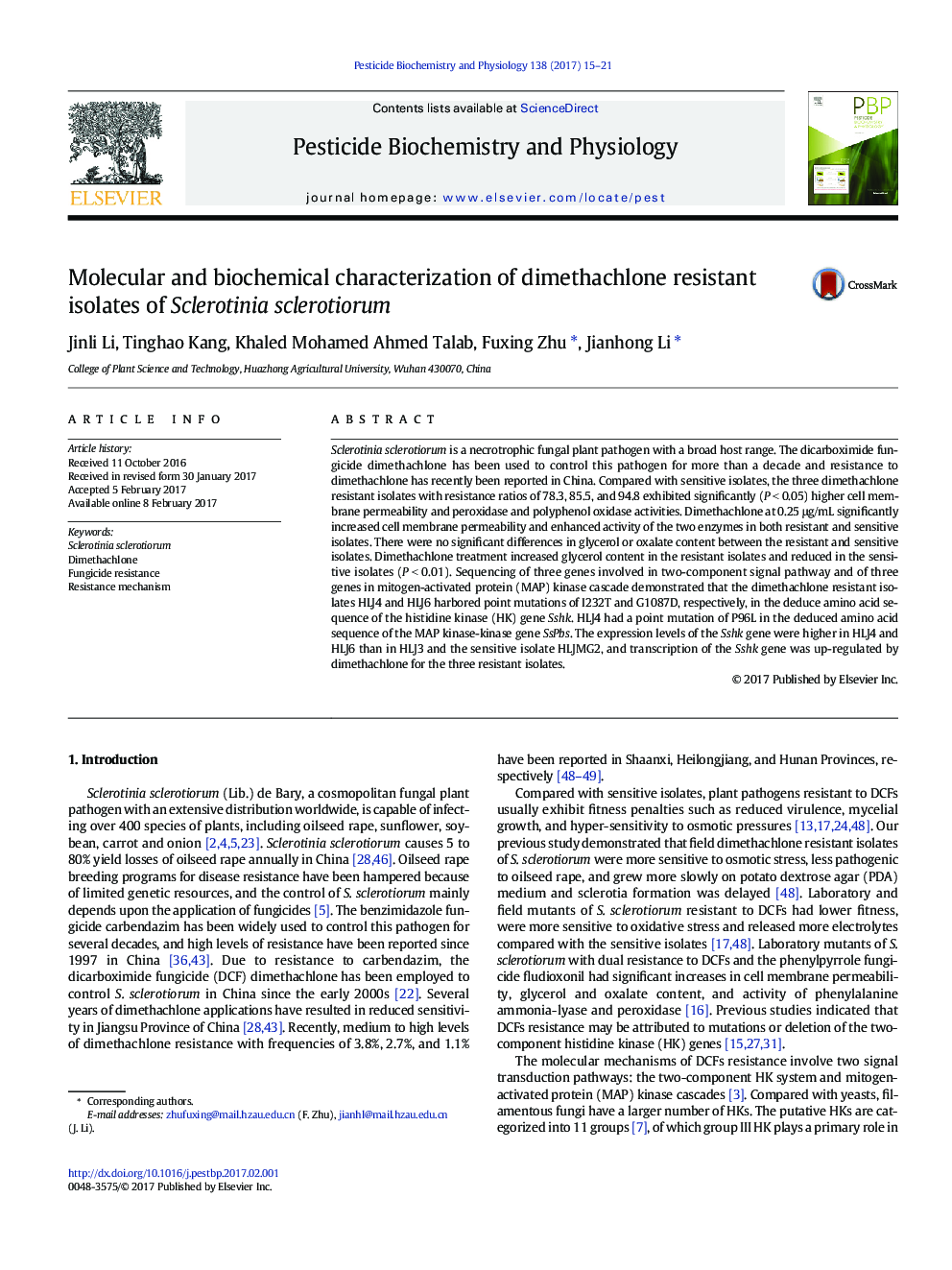| کد مقاله | کد نشریه | سال انتشار | مقاله انگلیسی | نسخه تمام متن |
|---|---|---|---|---|
| 5514853 | 1541761 | 2017 | 7 صفحه PDF | دانلود رایگان |

- Biochemical and molecular mechanisms of dimethachlone resistance were explored in Sclerotinia sclerotiorum.
- Dimethachlone resistant isolates had higher levels of cell membrane permeability and POD and PPO activities.
- Mutations were detected in the histidine kinase (HK) gene Sshk in dimethachlone resistant isolates.
- Transcription of the Sshk gene was up-regulated by dimethachlone for the resistant isolates.
Sclerotinia sclerotiorum is a necrotrophic fungal plant pathogen with a broad host range. The dicarboximide fungicide dimethachlone has been used to control this pathogen for more than a decade and resistance to dimethachlone has recently been reported in China. Compared with sensitive isolates, the three dimethachlone resistant isolates with resistance ratios of 78.3, 85.5, and 94.8 exhibited significantly (P < 0.05) higher cell membrane permeability and peroxidase and polyphenol oxidase activities. Dimethachlone at 0.25 μg/mL significantly increased cell membrane permeability and enhanced activity of the two enzymes in both resistant and sensitive isolates. There were no significant differences in glycerol or oxalate content between the resistant and sensitive isolates. Dimethachlone treatment increased glycerol content in the resistant isolates and reduced in the sensitive isolates (P < 0.01). Sequencing of three genes involved in two-component signal pathway and of three genes in mitogen-activated protein (MAP) kinase cascade demonstrated that the dimethachlone resistant isolates HLJ4 and HLJ6 harbored point mutations of I232T and G1087D, respectively, in the deduce amino acid sequence of the histidine kinase (HK) gene Sshk. HLJ4 had a point mutation of P96L in the deduced amino acid sequence of the MAP kinase-kinase gene SsPbs. The expression levels of the Sshk gene were higher in HLJ4 and HLJ6 than in HLJ3 and the sensitive isolate HLJMG2, and transcription of the Sshk gene was up-regulated by dimethachlone for the three resistant isolates.
223
Journal: Pesticide Biochemistry and Physiology - Volume 138, May 2017, Pages 15-21